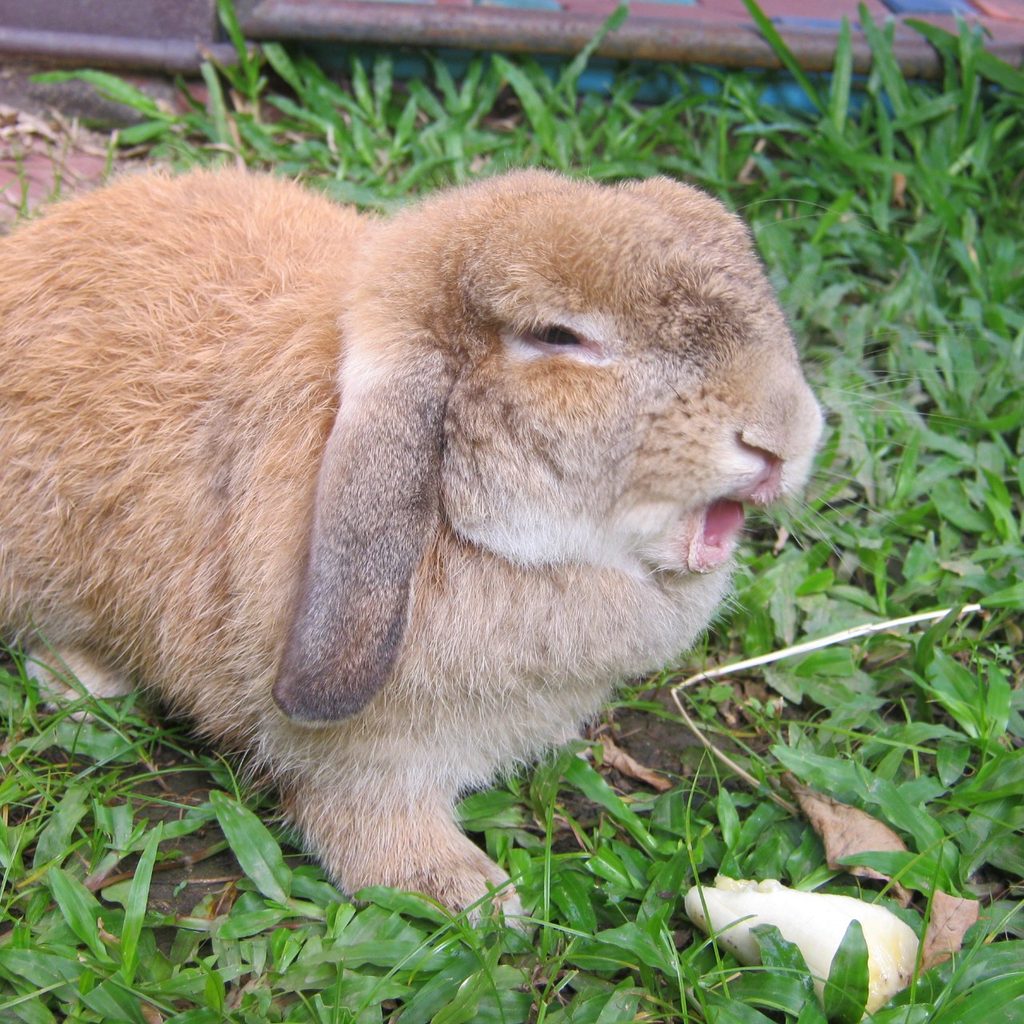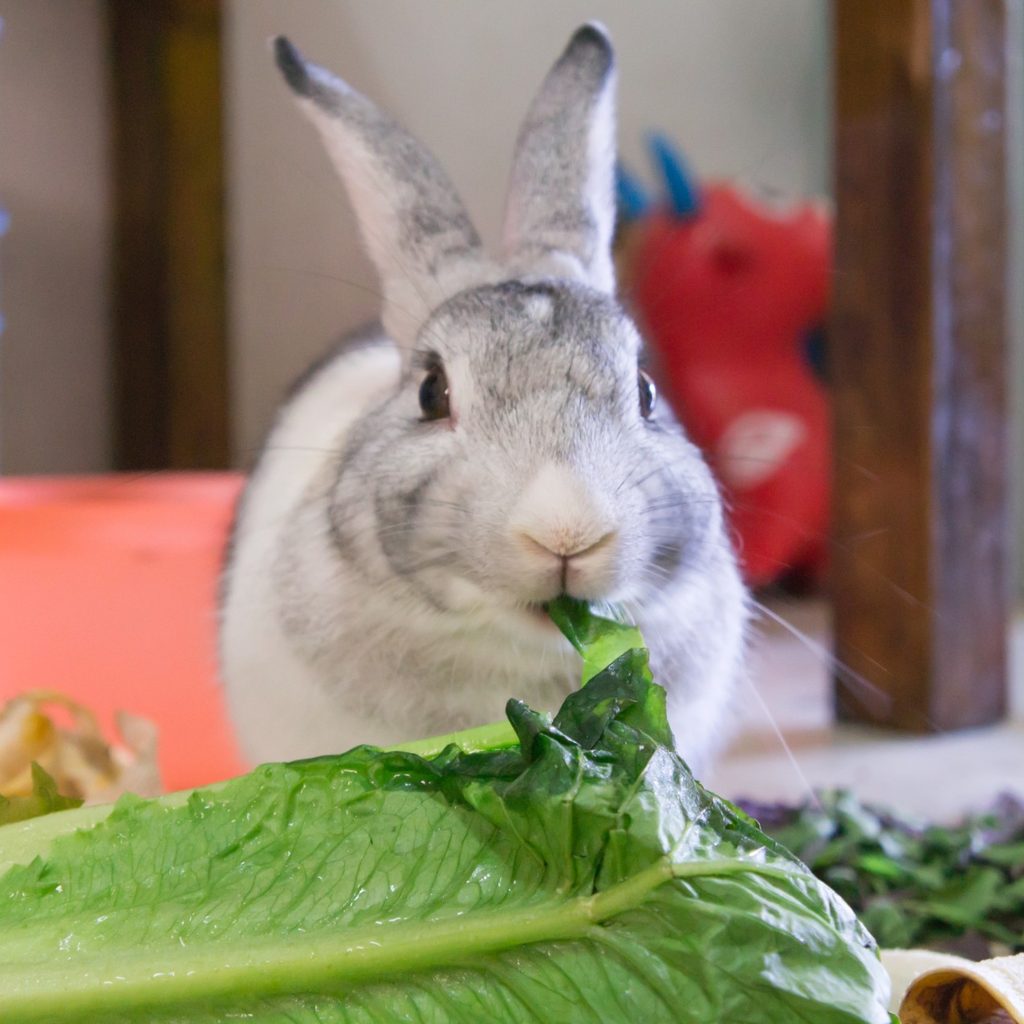Make your bunny hop with excitement every time you show up with delicious and healthy treats. Remember that your rabbit must cover 80% of their diet with fresh hay and complement the rest with a variety of fresh food. With moderation, they can enjoy sweet fruits, plants, veggies, and even homemade cookies. Some supplementation using pellets and food enhancers can help get the perfect balance and prevent any possible deficiency. Like everyone else, bunnies love treats, so check out this curated list of the great options to provide your pet with the best treats.
Bunnies love sweets

The best way to satisfy your furball’s sweet tooth is using fresh fruit. Feed these options sparingly and in small pieces. The high levels of sugar in fruit can be harmful to your rabbit if you feed them a lot of fruit regularly. In moderation, it is the best way to complement your bunny’s diet with the proper enzymes to break down food and hair they might have swallowed. These are the safest fruits you can use as treats for your pet rabbit:
- Strawberries
- Raspberries
- Bananas
- Pineapple
- Apples (no seeds)
- Mangos
- Kiwis
You can also try feeding them dried fruit — as long as they don’t have any added sugar or preservatives. Also remember that rabbit’s preferences change with age. The fruit they loved when younglings will no longer entice them as adults.
Veggies for days
Vegetables are the main delicacy of a rabbit’s diet. Whether they feed on leafy greens, celery stems, or carrots, they will do so gladly every time. Make sure you are using fresh produce that is free of pesticides. Whenever you are introducing a new food, start with very small quantities to make sure your pet won’t react negatively. This are some of the best vegetables to treat your longhops:
- Bell peppers
- Bok choy
- Brussels sprouts
- Carrot tops
- Cucumber
- Endive
- Fennel
- Radish
- Celery
As with all new foods, give your bunny some time to adjust to new textures and flavors. Once you’ve tried a few different options, it is easy to identify their favorites.
Plants and leaves are some of the best bunny treats

When it comes to leaves and plants, there are several varieties that will make your bunny really happy. Bring a bunch in your hand with you, and your rabbit will follow you around. They are a great treat for training, since they are low in sugar and great for digestion. These are our favorite options:
- Basil
- Cilantro
- Peppermint
- Coriander
- Parsley
- Thyme
- Rosemary
- Romaine lettuce
- Watercress lettuce
- Dandelions
- Milk thistle
What not to feed your rabbit
There are a lot of products labeled as safe for bunnies that include added sugars, carbs, and other damaging compounds that need to be avoided. Rabbits are very delicate, and their digestive system is easily upset. Keep an eye out for these forbidden foods:
- Yogurt Drops: Rabbits are not built to eat dairy. This can create a growth of bad bacteria in their stomach and create inflammation. Don’t trust the cute label design.
- Bread and Pasta: Carbs are no good for a bunny. If you want to maintain your rabbit’s healthy weight, avoid this type of food, as it has high sugar levels. It might seem innocent to share a bit of bread with your rabbit, but if done often, it can create some health problems.
- Avocados: Make sure you don’t feed your rabbit this otherwise precious fruit. It is super fatty and can actually kill your rabbit when ingested. A taste of it won’t hurt him, but avoid it to be completely safe.
- Rhubarb: This plant is commonly found in gardens all across the world. Unfortunately, it is very toxic to rabbits and can be fatal in large amounts. Make sure the area around your bunny’s living space is cleared of this type of plant.
- Chocolate: Just like dogs, chocolate can be poisonous to rabbits. You should make a point of avoiding any chocolate in your pet’s diet. Leaving chocolate unattended near a rabbit might end with a visit to the vet ER.
Bond with your pet and give them delicious snacks that not only make them happy, but also contribute to a healthy diet and overall well-being. Rabbits have a special ability to process fiber and nutrients that allow them to adapt very easily to new foods, but their guardians must be extra careful not to feed them any food that might do more harm than good. Now that you know, go ahead and pamper the whiskers out of your rabbit with some delicious treats.
Want more? Learn how to train your rabbit with our tips.


